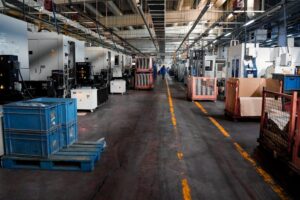AI and Automation as Drivers of Global Business Transformation
In today’s rapidly evolving business landscape, Artificial Intelligence (AI) and automation stand at the forefront of global transformation. Companies worldwide are leveraging these advanced technologies to revolutionize operations, improve customer experiences, and innovate at an unprecedented scale. This article dives deep into how AI and automation act as powerful catalysts for global business transformation, unlocking new opportunities and reshaping the competitive landscape.
Understanding AI and Automation in Business Context
AI refers to computer systems and algorithms capable of performing tasks that normally require human intelligence, such as decision-making, natural language understanding, and pattern recognition. Automation, on the other hand, involves using technology to perform repetitive or complex tasks without human intervention.
When combined, AI and automation form a synergistic force that can streamline business processes, reduce operational costs, and foster innovation across multiple industries – from manufacturing, healthcare, and finance to retail and logistics.
Key Benefits of AI and Automation in Business Transformation
- Increased Operational Efficiency: Automating routine tasks frees human talent to focus on higher-value activities, accelerating productivity and reducing errors.
- Enhanced Decision-Making: AI-driven analytics provide insights from vast datasets, enabling smarter, data-backed decisions in real-time.
- Personalized Customer Experience: Automation powered by AI can deliver personalized recommendations, chatbots, and seamless service availability 24/7.
- Cost Reduction: Reducing manual intervention in processes like supply chain management or customer service leads to significant cost savings.
- Scalability: AI systems can scale rapidly, allowing businesses to grow without proportionally increasing staffed resources.
- Innovation Acceleration: AI enables the rapid prototyping of new products and services, fostering agility in competitive markets.
How AI and Automation Are Transforming Global Industries
The impact of AI and automation is particularly evident in these major sectors:
| Industry | Transformation Through AI & Automation | Example Technologies |
|---|---|---|
| Manufacturing | Smart factories with robots improving assembly lines and predictive maintenance. | Robotics, IoT sensors, Machine Learning |
| Healthcare | Automated diagnostics, patient data analysis, and robotic surgeries enhancing care quality. | AI Imaging, Natural Language Processing (NLP), Robotic Process Automation (RPA) |
| Finance | Fraud detection, automated trading, and customer service chatbots streamlining operations. | Machine Learning, Neural Networks, RPA |
| Retail | Personalized shopping experiences and supply chain automation improving engagement and efficiency. | Recommendation Engines, Chatbots, Automated Inventory Systems |
| Logistics | Route optimization, autonomous vehicles, and automated warehousing reducing delivery times. | AI Routing Algorithms, Drones, Warehouse Robotics |
Real-World Case Studies of AI-Driven Business Transformation
1. Amazon – Revolutionizing Retail and Logistics
Amazon’s widespread use of AI and automation has been a game-changer. From AI-powered recommendation engines tailored to customers’ preferences to automated warehouses run by robots, the company has boosted both operational efficiency and customer satisfaction. Their delivery optimization algorithms reduce costs and improve delivery times globally.
2. Siemens – Leading Intelligent Manufacturing
Siemens uses AI and automation in smart factories to facilitate predictive maintenance, reducing downtime significantly. Their digital twin technology, which uses AI simulation models, enables rapid optimization of manufacturing processes.
3. JPMorgan Chase – Automated Financial Services
JPMorgan Chase implemented AI tools to automate contract review and fraud detection, saving thousands of staff hours and increasing accuracy. Their COiN platform reduces mundane legal reviews, freeing employees for strategic tasks.
Practical Tips for Businesses to Embrace AI and Automation
- Start Small and Scale: Begin with automating small, repetitive tasks before integrating more complex AI solutions.
- Focus on Data Quality: AI models rely on clean, accurate data to produce reliable insights.
- Invest in Employee Training: Equip your workforce with skills to collaborate effectively with AI and automation tools.
- Choose the Right Tools: Evaluate AI and automation platforms based on your industry needs and business goals.
- Measure Impact Regularly: Track KPIs such as productivity, customer satisfaction, and cost savings to optimize your strategy.
- Maintain Compliance and Ethics: Ensure AI systems comply with regulations and ethical standards to build trust.
The Future Outlook: AI and Automation as Strategic Business Enablers
As AI and automation technologies advance, their role in business transformation will deepen. Trends like explainable AI, improved human-AI collaboration, and edge computing will drive more innovative solutions. Organizations that embrace these technologies strategically will win in efficiency, customer engagement, and sustainable growth on a global scale.
Conclusion
The combination of AI and automation is undeniably transforming the way businesses operate worldwide. From streamlining operations and enhancing customer experiences to fueling innovation, these technologies are becoming indispensable drivers of global business transformation. By strategically adopting AI and automation, companies can unlock significant competitive advantages, improve operational excellence, and future-proof their organizations amidst accelerating digital disruption.
Are you ready to harness the power of AI and automation to lead your business transformation journey? Start exploring tailored AI solutions today and embrace the future of work and innovation.











